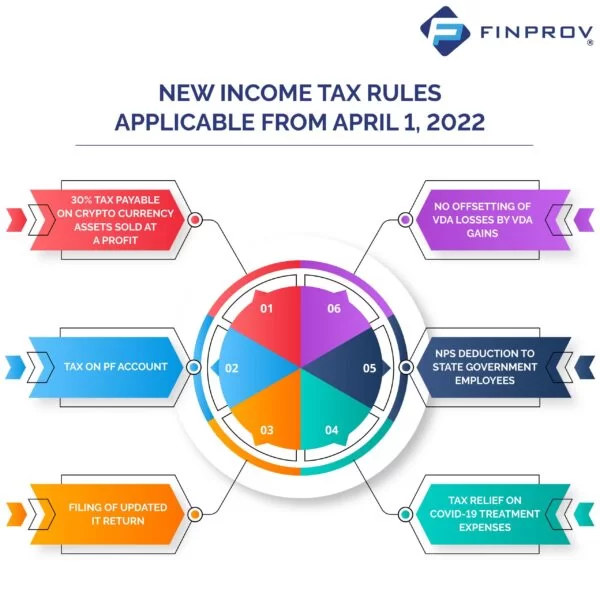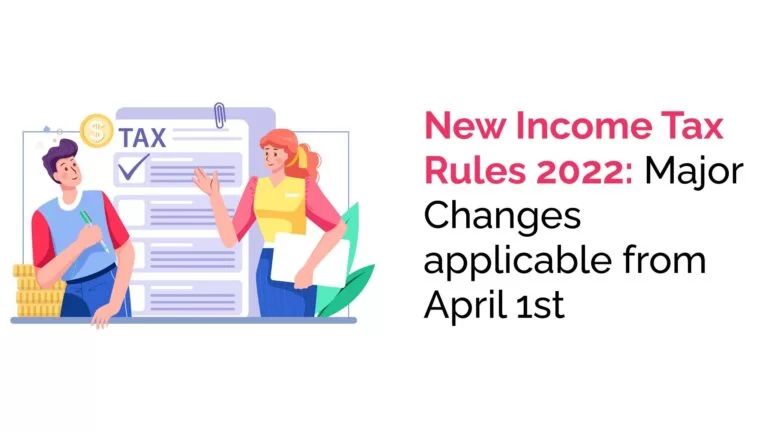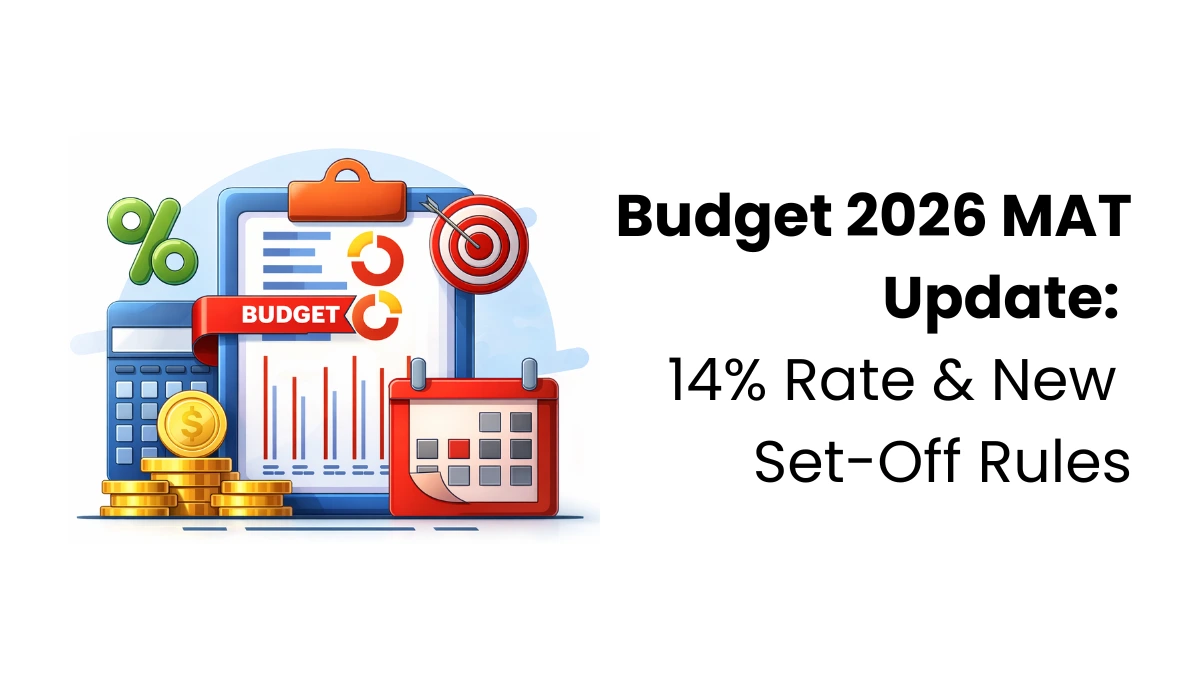It’s the beginning of a new financial year. Starting afresh this season, we have quite a few changes plated for us by our Financial minister Mrs Nirmala Sitharaman and her party. Most of the changes for this fiscal year pertain to personal taxation – income tax. The new income tax rules and regulations, of course, will be implemented from April 1st 2022. As taxpaying, responsible citizens of the country, it is our duty to be aware of these changes in the system. Finprov aims at the same, to keep you all well informed about these vagaries and how it affects us.
6 major New Income Tax Rules effective from the new fiscal
In her budget speech on February 1st 2022, the country’s finance minister introduced various changes concerning the amount of tax citizens have to pay in the upcoming financial year, most of which will be covered in this blog.
Crypto Tax
This one is for you, all those cryptocurrency enthusiasts out there. Individuals need to pay a 30% tax on income generated from virtual digital assets such as cryptocurrencies. Bitcoin, Ethereum, and NFTs (non-fungible tokens) are a part of this list. There is also a 1% TDS and gift tax to be paid by those receiving these digital assets as gifts. (conditions applied) This rule will come into effect only from July 1st, 2022.
The reason for the introduction of a tax on digital assets is due to the astonishing increase in the number of transactions of these resources. Another vital point to be noted here is that the loss incurred from these digital assets cannot be set off against any other income.
PF account and its tax
This is not a new rule. It is from the 25th Amendment, 2021, under section 9-D of the Income Tax Act. The law states that interest accumulated in a person’s PF fund for contributions over 2.5 lakh a year is taxable. This rule was implemented by the Central Board of Direct Taxes and will be applicable from April 1st. Here again, the point to be noted is that tax will be applicable only for the excess contribution and not the contributed amount.
For example, for any number above 2.5 lakhs, only the excess amount will be calculated. This restriction is implemented to discourage high-income taxpayers from taking advantage of the government-sponsored plan. They would put their extra money in the Employee Provident Fund (EPF) to earn tax-free interest. This rule, however, will have no impact on the lower and middle-income taxpayers.
Filing of updated IT returns
This new income tax rule gives individuals a breathing space. It allows taxpayers to update their IT returns within two years from the end of a given assessment year. Earlier, this window was only five months, making it slightly tricky for all the working-class people. But this cannot be filed to report additional losses or decrease in tax liability. This rule has been implanted keeping in mind any missed out or undisclosed TDS income or any other error leading to the less filing of taxes. When reporting such additional income, the taxpayer must keep in mind the following –
- An additional tax of 25% must be paid by the individual if the updated return is filed between 1 and 12 months (1st year) from the end of the relevant assessment year.
- An additional tax of 50% must be paid by the individual if the updated return is filed between 13 and 24 months (2nd year) from the end of the relevant assessment year.

Tax Relief pertaining to Covid – 19
This concerns any expenses incurred for Covid- 19 treatment. Income tax will not be charged on the amount received by the individual from his/her employer for covid-19 expenses. Financial assistance received will also not be charged with tax. As always, there are certain limits and conditions to this rule as well. Also, this particular Amendment is applicable with hindsight from the 2021-assessment year.
NPS and State Government employees
Employees of the state government will now be eligible to claim a 14 per cent tax advantage on their employer’s contributions to the National Pension System (NPS) under Section 80CCD (2), up to 14 per cent of their basic income and dearness allowance. This income tax deduction is equivalent to that of employees of the federal government under the same section.
VDA losses and gains
The government has sought to delete the word “other” from the provision relating to the set-off of losses from money gained in virtual digital assets, according to the Finance Bill, 2022. This means that a loss resulting from the transfer of virtual digital assets (VDA) cannot be offset against a gain resulting from the transfer of another VDA.










